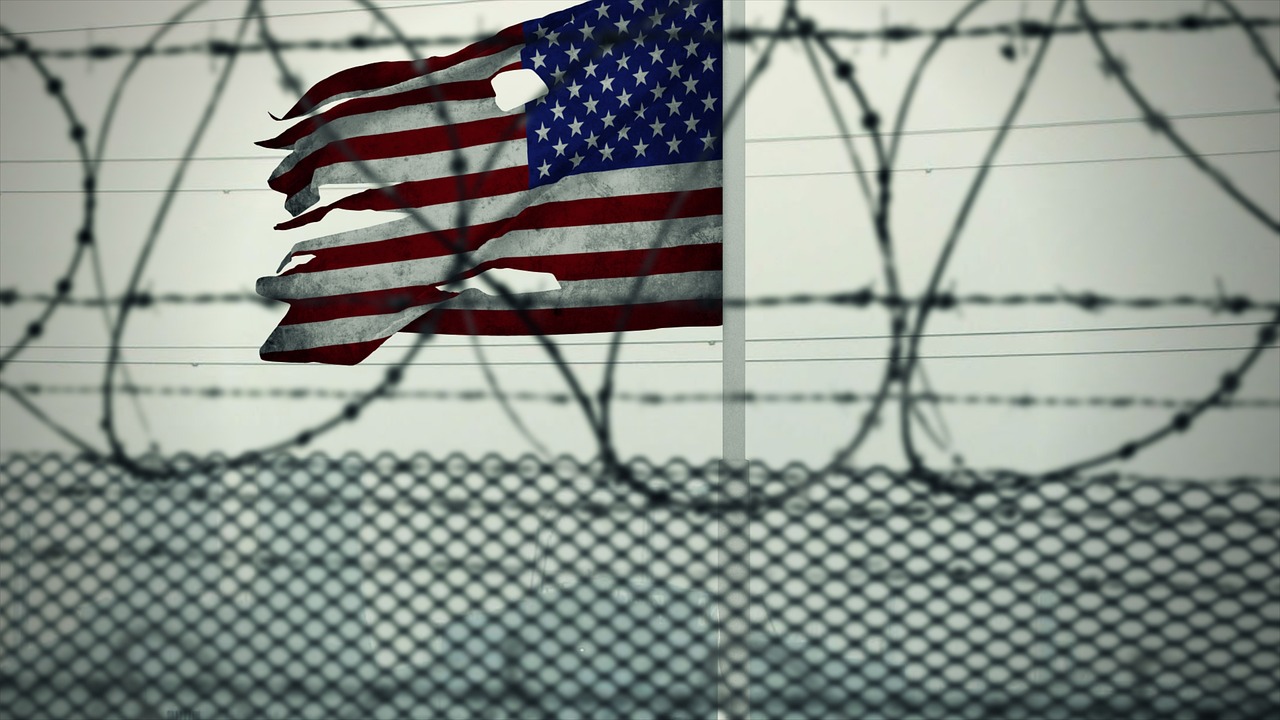The United States is truly exceptional in terms of the number of people in our prisons. This country incarcerates 716 people for every 100,000 population, more than any other country in the world. While we have under five percent of the world's population, we account for around twenty five percent of its prisoners. The Prison Industrial Complex in the USA has a vested interest in keeping their facilities full even if crime statistics are on the decline.
Stop for a moment and let that sink in... What are the implications of this reality for the way our justice system operates? It is time for a critical examination of the process of what is blatantly an “injustice system”. Can a society that ignores this fact escape its consequences?
When our aspiring candidates for political office talk about being “hard on crime”, let us loudly interrupt them and ask them how much money they are getting from this prison industrial complex. Are they and the judges we elect the compliant cronies of the system of injustice which now exists to target the poor and underprivileged in our communities...especially our communities of color?
When our aspiring candidates for political office talk about being “hard on crime”, let us loudly interrupt them and ask them how much money they are getting from this prison industrial complex. Are they and the judges we elect the compliant cronies of the system of injustice which now exists to target the poor and underprivileged in our communities...especially our communities of color?
Paul Waldman writing in The American Prospect observes the following:
"... you can't talk about prisons without talking about race. African Americans in particular are over-represented in prisons; though they are 13 percent of the population, they made up 38 percent of the population of state prisons.... The crimes that landed them there, however, are not too different from their white and Hispanic counterparts. Eighteen percent of blacks in state prisons were convicted of drug crimes, compared to 15 percent of whites and 17 percent of Hispanics."
In addition to the disproportionate number of persons of color in our jails, it is also a fact that the US imprisons more women than any other country. This raises other disturbing questions about the political culture being perpetuated here. Think for a moment about the history of the disenfranchisement of women and minorities in this country's politics.
Keep this in mind as you mull over this issue- Studies have shown that States budgets for education have declined even as their budgets for incarceration have increased. It is a well documented fact that the vast majority of our imprisoned population are from communities with poor school districts. So as the educational infrastructure in disadvantaged communities suffer from crippling deficits, the prison industrial complex has grown more and more muscular. In 2009 the School District of Philadelphia faced a deficit of $147 million after losing $160 million in State funding. Yet, during this same period, taxpayers spent nearly $290 million imprisoning residents from its most economically depressed neighborhoods.
Keep this in mind as you mull over this issue- Studies have shown that States budgets for education have declined even as their budgets for incarceration have increased. It is a well documented fact that the vast majority of our imprisoned population are from communities with poor school districts. So as the educational infrastructure in disadvantaged communities suffer from crippling deficits, the prison industrial complex has grown more and more muscular. In 2009 the School District of Philadelphia faced a deficit of $147 million after losing $160 million in State funding. Yet, during this same period, taxpayers spent nearly $290 million imprisoning residents from its most economically depressed neighborhoods.
In a Democracy such as ours one may ask... in fact must ask... who benefits from the disenfranchisement of this part of the potential electorate which is disproportionately affected by our present policies on incarceration? Is the excessive incarceration of women and people of color a way of thwarting the democratic process? Does it tilt the balance of electoral power in favor of the same influences that historically wanted exactly that state of affairs? These are questions worthy of further examination. Is this in fact jerrymandering via incarceration?
Let us be very clear about what is at stake here. There are inescapable consequences of this kind of injustice. The institutions in our communities must begin to take this issue to heart. I say this especially to those institutions that focus on the moral issues we face as individuals and as communities. We must do more than is being done to conscientize our fellow citizens about this problem.
The proliferation of “prison ministries” focusing on saving the soul of the incarcerated is unlikely to change the hearts of the captives in this new system of slavery. Poor prisoners are more aware than the preachers that the dichotomy assumed between their physical and spiritual needs is mostly false. The moral voices among us must be employed to bring a specific focus- to shine a bright light- on the degradation, misery, and disenfranchisement, created by a system of greed and it's corrupted agents.
The proliferation of “prison ministries” focusing on saving the soul of the incarcerated is unlikely to change the hearts of the captives in this new system of slavery. Poor prisoners are more aware than the preachers that the dichotomy assumed between their physical and spiritual needs is mostly false. The moral voices among us must be employed to bring a specific focus- to shine a bright light- on the degradation, misery, and disenfranchisement, created by a system of greed and it's corrupted agents.



No comments:
Post a Comment